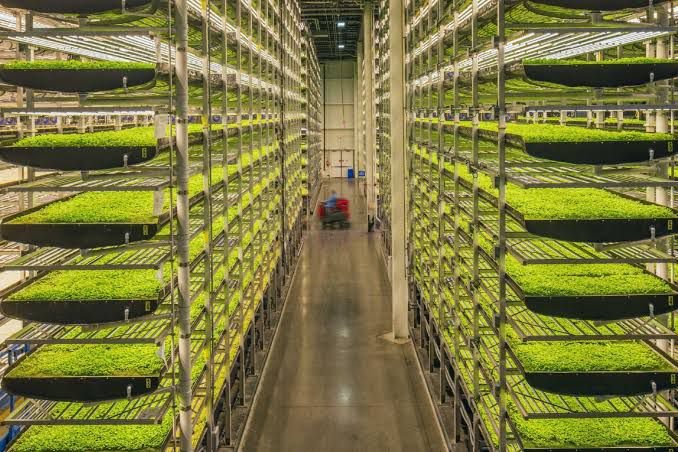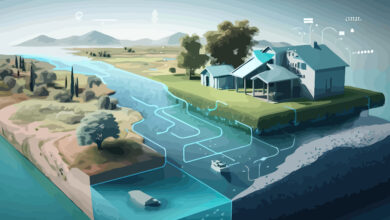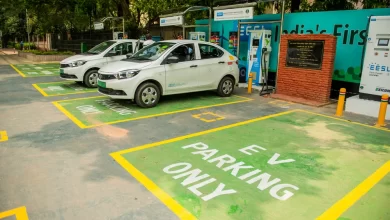From Farm to Table
Innovative Global Startups Revolutionizing Agriculture and Food Supply Chains

In an era of rapid technological advancement and growing concerns about sustainability, the traditional farm-to-table process is undergoing a profound transformation. Innovative startups around the globe are leveraging technology to enhance every aspect of the food supply chain, from cultivation to consumption. These companies are addressing challenges such as food waste, inefficient supply chains, and the environmental impact of traditional farming methods, ultimately bringing fresher, healthier, and more sustainably produced food to our tables.
Precision Agriculture: Enhancing Farming Efficiency
Startups like CropX and Taranis are at the forefront of precision agriculture, using data analytics, IoT (Internet of Things) devices, and machine learning to optimize farming practices. CropX, an Israeli startup, provides soil sensors that monitor moisture levels, temperature, and salinity. An Indian agri-tech startup, Fasal provides a platform that uses AI and IoT to give farmers actionable insights on weather forecasts, soil health, and crop conditions. This real-time data helps farmers make informed irrigation decisions, reducing water usage while maximizing crop yield. Based in Chandigarh, AgNext uses AI and machine learning to analyze crop quality and soil health. Their technology assists farmers in optimizing their practices and ensures that only the best quality produce reaches the market.
DroneDeploy and Planet Labs are leveraging aerial and satellite imagery to provide farmers with detailed insights into their fields. By analyzing crop health, identifying pest infestations, and monitoring soil conditions, these technologies enable farmers to take timely actions, increasing productivity and reducing the need for chemical inputs.
Vertical Farming: Growing Upwards
Startups like AeroFarms and Bowery Farming are pioneering vertical farming, a method of growing crops in vertically stacked layers. Using advanced hydroponics and aeroponics, these indoor farms can produce year-round crops with significantly less water and land compared to traditional farming. AeroFarms, for instance, boasts a 95% reduction in water usage and 390 times higher productivity per square foot.
A Berlin-based startup, Infarm, installs modular vertical farms directly in supermarkets and restaurants. This reduces the food miles and ensures that consumers get the freshest produce possible. Infarm’s approach has been adopted by grocery chains across Europe and North America.
Hyderabad-based startup Urban Kissan focuses on hydroponic vertical farming to grow fresh produce within urban settings. UrbanKisaan’s farms use 95% less water than traditional farming and provide local communities with year-round access to fresh, pesticide-free vegetables.
Operating primarily in Bangalore, Clover Ventures partners with farmers to implement greenhouse farming techniques. This controlled environment of agriculture ensures consistent quality and supply of premium produce, directly connecting farmers to retail markets.
By bringing farms closer to urban centers, vertical farming reduces the distance food travels from farm to table. This not only ensures fresher produce but also cuts down on carbon emissions associated with transportation.
Blockchain: Ensuring Transparency and Traceability
Provenance and Ripe.io are using blockchain technology to enhance transparency and traceability in the food supply chain. Provenance provides a platform for tracking the journey of food products from the farm to the consumer, ensuring that every step is documented and verifiable. This transparency helps combat food fraud and builds consumer trust.
Farmizen is a platform that allows urban consumers to rent mini-plots in rural farms and grow their organic food. By integrating blockchain, Farmizen ensures transparency, allowing users to track the growth process and verify the organic credentials of their produce. By providing a transparent supply chain, Krishitantra builds trust between farmers and consumers and ensures the authenticity of organic and high-quality produce.
Food Delivery and E-commerce: Bridging the Gap
Startups like Farmdrop and Misfits Market are connecting farmers directly with consumers, bypassing traditional supply chains. Farmdrop allows consumers to order fresh, local produce directly from farmers, ensuring that more of the profit goes to the producers and reducing the time food spends in transit.
India’s largest online grocery retailer, BigBasket connects consumers directly with farmers through its Farm Fresh initiative. This model shortens the supply chain, ensuring fresher produce and better prices for both consumers and farmers. A pioneer in the farm-to-fork model, Ninjacart uses technology to streamline the supply chain, connecting farmers directly with retailers. This reduces post-harvest losses and ensures that farmers receive fair prices for their produce.
Alternative Proteins and Sustainable Food Sources
Companies like Beyond Meat and Impossible Foods are revolutionizing the protein market with their plant-based meat alternatives. These startups aim to reduce the environmental impact of meat production, which is a significant contributor to greenhouse gas emissions. Beyond Meat’s products use 99% less water, 93% less land, and 46% less energy compared to traditional beef production.
A pioneer in cultured meat, Dutch startup Mosa Meat is developing lab-grown meat from animal cells. This method could drastically cut down the environmental footprint of meat production and address ethical concerns associated with livestock farming.
GoodDot, based in Udaipur, is leading the plant-based meat revolution in India. Their products mimic the taste and texture of traditional meat while being more sustainable and cruelty-free. GoodDot aims to provide affordable protein alternatives to the masses.
ClearMeat is a startup that is working on cultured meat solutions. By producing meat directly from animal cells, ClearMeat aims to offer a sustainable and ethical alternative to conventional meat, reducing the environmental impact and addressing food security challenges.
Looking ahead, the integration of artificial intelligence, robotics, and biotech will further revolutionize the farm-to-table process. AI-driven analytics will provide even deeper insights into crop health and soil conditions, while advances in biotech could lead to the development of new, more resilient crop varieties. Robotics will automate labor-intensive tasks, increasing efficiency and reducing the need for human labor in hazardous environments.
Startups like iFarm and Small Robot Company are expanding their technologies beyond their home countries, bringing their solutions to farmers and consumers worldwide. iFarm, based in Finland, offers scalable vertical farming solutions that can be implemented in various climates and urban environments, while Small Robot Company from the UK is developing robotic solutions for precision agriculture that can be used globally.
With the global population expected to reach 9.7 billion by 2050, ensuring food security is a pressing concern. Startups focusing on alternative proteins, vertical farming, and improved supply chain management are crucial in meeting the growing food demand without exacerbating environmental issues.





